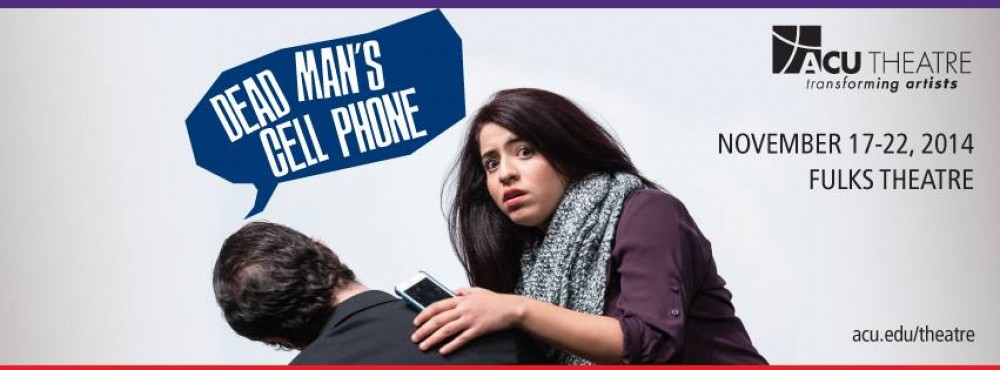Sarah Ruhl graduated from Brown University with her M.F.A. in playwriting in 2001 and began having her plays produced that same year. However, Ruhl initially had planned on being a poet, only switching to playwriting after the encouragement of a college professor. This strong inclination to poetry is still very evident in each of her plays. After her play The Clean House was nominated for a Pulitzer prize in 2005, her place as one of America’s foremost modern playwrights was established. She is known for her unique work as a playwright, using heightened reality and abstract metaphors to deliver themes. Rather than relying on a conventional love story to teach us how to communicate, for example, she gives us a play about a dead man and the cell phone he leaves behind.
One of the keys to understanding Ruhl’s plays is understanding this use of style and metaphor. So, rather than continuing this post as a biography of her life, let’s examine what she has to say about her own work.
“I like to see people speaking ordinary words in strange places, or people speaking extraordinary words in ordinary places.”
“[My works are] three-dimensional poems.”
“Everyone has a great, horrible opera inside him. I feel that my plays, in a way, are very old-fashioned. They’re pre-Freudian in the sense that the Greeks and Shakespeare worked with similar assumptions. Catharsis isn’t a wound being excavated from childhood.”
“I’m interested in the things theatre can do that other forms can’t, so theatre as pure plumbing of self, in a psychological way, seems very readerly to me.”
“Aristotle has held sway for many centuries, but I feel our culture is hungry for Ovid’s way of telling stories. His is not the neat Aristotelian arc but, instead, small transformations that are delightful and tragic. The Aristotelian model—a person wants something, comes close to getting it but is smashed down, then finally gets it, or not, then learns something from the experience—I don’t find helpful. It’s a strange way to look at experience. I like plays that have revelations in the moment, where emotions transform almost inexplicably. The acting style isn’t explicated, either. It’s not psychological.”
“If you distill people’s subjectivity and how they view the world emotionally, you don’t get realism. I don’t want to smooth out the emotions to the point where you could interpret them totally rationally, so that they have a clear reference point to the past. Psychological realism makes emotions so rational, so explained, that they don’t feel like emotions to me.”
“I prefer an actor who says, ‘My character doesn’t have a backstory, so I won’t concoct one. I will live as fully in every moment as I can. I will let the language move me, as opposed to a secret backstory of my own.’ [I like my actors to have] a sense of irony and to be touched with a little brush of the irrational.”
Additionally, let’s look more specifically at some of the things Ruhl has to say about Dead Man’s Cell Phone.
“Cell phones, iPods, wireless computers will change people in ways we don’t even understand. We’re less connected to the present. No one is where they are. There’s absolutely no reason to talk to a stranger anymore—you connect to people you already know. But how well do you know them? Because you never see them—you just talk to them. I find that terrifying.”
“They are like characters whose parts have deserted them and now, trapped in the space of their waiting, must keep themselves company.”
“I can be very medieval about love—like the notion that love is through the eyes and that it’s very immediate, as opposed to modern and neurotic.”
“The audience knows the difference between being talked to and being talked at. Talk to them, please.”
In these quotes, we see a playwright who refuses to tell a realistic, unimaginative storyline. Instead, Ruhl delights in the zany and off-beat when crafting her plays. As New York Magazine so expertly described, Dead Man’s Cell Phone is “a giant slice of whimsy drenched in whimsy sauce.”
References:
Lahr, John. “Surreal Life: The Plays of Sarah Ruhl.” The New Yorker. 17 March 2008. Web. 6 Nov. 2014.
McCarter, Jeremy. ” New York Magazine Theatre Review.” NYMag,com. 24 March 2008. Web. 6 Nov. 2014.
“Sarah Ruhl.” NewDramatists.org. 2011. Web. 4 November 2014.
